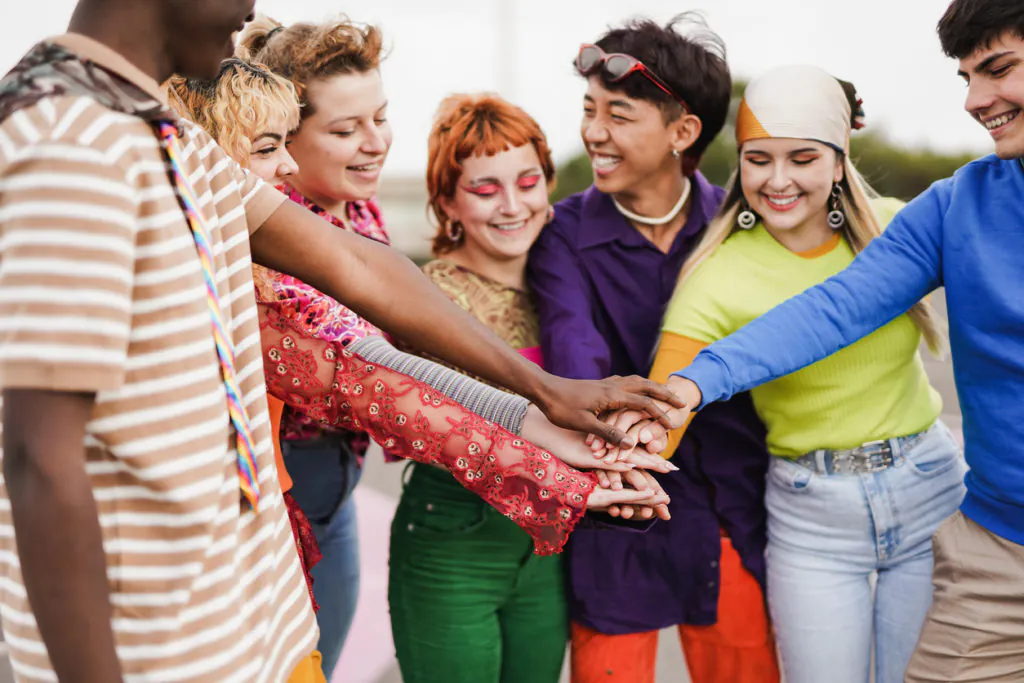Why 18% of LGBTQ+ Adults Avoid Coming Out: Key Factors

Despite societal changes and growing acceptance of the LGBTQ+ community, 18% of LGBTQ+ adults continue to avoid coming out. The reasons for this are complex and multifaceted, including fear of potential negative consequences, doubts about support from loved ones, and concerns about social stigma. In this analysis, we look at the key factors that influence the decision to remain closeted and how they impact the lives and emotional well-being of these individuals.
From Awareness to Revelation: The Reasons That Prevent 18% of LGBTQ+ Adults from Coming Out
Members of the LGBTQ+ community often come to terms with their identity at a young age, but not all of them are willing to share it with their loved ones. According to a new Gallup report, most LGBTQ+ adults came to terms with their sexual orientation or gender identity at an early age: 48% of respondents came to terms by age 14, and 72% by age 18, with the average age of understanding being 14.
Most LGBTQ+ adults came out to friends and family by age 22 (57%), and the vast majority did so by age 30 (71%). However, a significant number of people said they had never come out (18%), including a small proportion of gay and lesbian adults in the US (5%) and nearly a quarter of bisexual adults (23%).

“Americans, like citizens of other countries, have seen significant changes in their attitudes toward the LGBTQ+ community, including their perceptions of the morality of same-sex relationships and LGBTQ+ rights in the United States,” the report notes. While public opinion and attitudes toward this group have changed, this has not significantly affected the age at which LGBTQ+ Americans become aware of their identity, but it has had a significant impact on when they choose to disclose their identity to others.
Because gay and lesbian people (24%) are more likely to come out, they are twice as likely as bisexual people (12%) to report experiencing worse treatment or harassment in the past year compared to previous years. Overall, about one in four LGBTQ+ adults say they have experienced mistreatment or harassment “often” (5%) or “sometimes” (19%) because of their sexual orientation.
“Social change has not fully eradicated the discrimination that one in four LGBTQ+ adults have experienced in the past 12 months, with gays and lesbians particularly affected,” the report says.
Coming Out in Show Business and Sports: How Public Confessions Shape a New Understanding of LGBTQ+ Identity
In recent years, many famous musicians and athletes have come out and openly declared their sexual orientation or gender identity. These public confessions not only marked an important step in their personal lives, but also had a significant impact on societal norms and perceptions of the LGBTQ+ community.
Among the famous musicians who have come out are singer and actress Ella Mai, who has openly declared her bisexuality, and Billie Eilish, who has made public statements about her gender identity. These confessions have helped expand the understanding of how sexual orientation and gender identity can intersect in the lives of public figures.

There have also been many significant coming outs in sports. For example, openly gay footballer Jason Collier and tennis player Margaret Court have become iconic figures in promoting visibility and acceptance in sports. These coming outs have been important in promoting inclusivity and breaking down stereotypes in both music and sports.
Such steps by famous personalities contribute to greater acceptance by the LGBTQ+ community and help create a more open and supportive environment for everyone.
